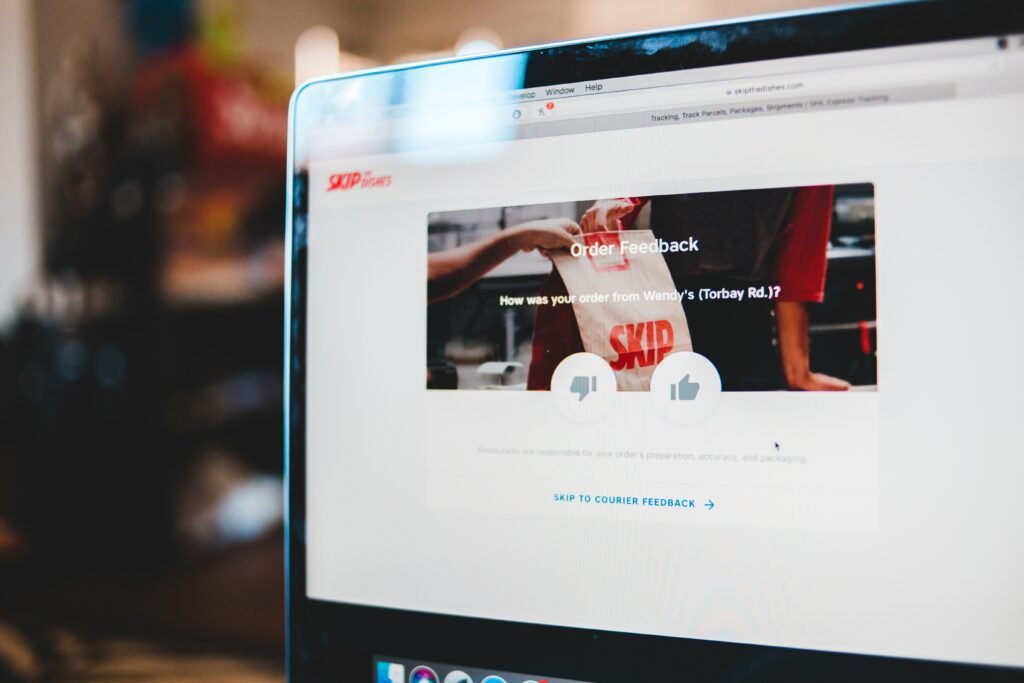Have you ever wondered how some individuals consistently achieve exceptional results, while others seem to struggle? The secret lies in the powerful combination of feedback and self-reflection. These two elements act as catalysts, propelling us towards enhanced productivity and improved performance. Whether in our personal or professional lives, feedback provides valuable insights that help us grow and develop. Meanwhile, self-reflection allows us to gain a deeper understanding of ourselves, paving the way for continuous improvement.
In this blog post, we will explore the crucial role that feedback and self-reflection play in enhancing productivity and performance. We will delve into their power to drive growth and development, discover effective techniques for self-reflection, understand how continuous improvement can be achieved through feedback, harness the benefits of positive feedback for increased confidence and motivation, as well as learn how actionable self-reflection can lead to tangible performance enhancements.
So grab your notepad because it’s time to unlock the potential within you! Let’s dive into the world of feedback and self-reflection – where productivity soars high above expectations!
The Role of Feedback and Self-Reflection in enhancing Productivity and Performance
1. Feedback and Self-Reflection: Catalysts for Improved Productivity and Performance
Feedback and self-reflection are like the dynamic duo of personal and professional growth. They work hand in hand, propelling us towards improved productivity and enhanced performance.
Feedback acts as a powerful catalyst, providing us with valuable insights into our strengths, weaknesses, and areas for improvement. It allows others to share their perspectives on our work or behavior, offering fresh perspectives that we may not have considered ourselves. Constructive feedback helps us identify blind spots and make necessary adjustments to refine our approach.
On the other hand, self-reflection takes us on a journey of introspection. It requires honest examination of our thoughts, actions, and motivations. Through self-reflection, we gain deeper understanding of ourselves – our values, beliefs, and aspirations. This heightened awareness empowers us to make conscious choices aligned with our goals.
Both feedback and self-reflection foster continuous learning and improvement. They encourage adaptability by highlighting areas where we can grow further or alternative approaches we can explore. By embracing a mindset of constant evolution rather than stagnation or complacency, we position ourselves for long-term success.
In essence, feedback fuels progress while self-reflection provides the compass guiding our path forward. When combined harmoniously in an ongoing cycle of growth-seeking behavior – receiving feedback humbly followed by reflective thinking – these two forces become indispensable tools for unlocking untapped potential within ourselves.
So let’s embrace the power of feedback and self-reflection as catalysts for improved productivity and performance! Together they will propel us towards new heights as we strive for excellence in all aspects of life.
2. The Power of Constructive Feedback: Driving Growth and Development
Constructive feedback has the power to propel individuals towards growth and development, enabling them to reach new heights in their productivity and performance. Unlike criticism, which focuses on pointing out flaws and shortcomings, constructive feedback takes a more holistic approach by highlighting areas for improvement while also acknowledging strengths.
One of the key benefits of constructive feedback is that it provides valuable insights into our blind spots. Often, we may not be aware of certain behaviors or habits that are hindering our progress. Constructive feedback shines a light on these blind spots, allowing us to address them head-on and make necessary adjustments.
Moreover, constructive feedback fosters a culture of continuous learning and improvement. It encourages open dialogue between team members or supervisors and employees, creating an environment where everyone feels comfortable sharing ideas and suggestions for enhancing performance.
Furthermore, receiving constructive feedback helps individuals develop resilience in the face of challenges. By embracing this type of feedback as an opportunity for growth rather than viewing it as personal criticism, individuals can cultivate a growth mindset that allows them to adapt and thrive in ever-changing circumstances.
In addition to driving individual growth, constructive feedback also contributes to overall team success. When team members provide each other with thoughtful suggestions for improvement, they contribute to strengthening the collective knowledge base within the group. This collaborative approach creates synergy among team members as they work together towards achieving shared goals.
Therefore, it is crucial for organizations to foster a culture where giving and receiving constructive feedback is valued and encouraged at all levels. By recognizing its power in driving growth and development both individually and collectively, they can unlock untapped potential within their workforce.
3. Self-Reflection Techniques: Gaining Insights for Personal and Professional Growth
Self-reflection is a powerful tool that can unlock hidden insights and pave the way for personal and professional growth. By taking time to reflect on our actions, thoughts, and experiences, we gain valuable self-awareness that allows us to make informed decisions and take targeted action towards improvement.
One effective self-reflection technique is journaling. By putting pen to paper or fingers to keyboard, we create a space for introspection where we can explore our thoughts, emotions, and goals. Writing down our accomplishments, challenges faced, and lessons learned helps us identify patterns in our behavior and thought processes.
Another technique is mindfulness meditation. Taking a few moments each day to sit quietly and focus on the present moment can help calm the mind and increase self-awareness. Through mindful observation of our thoughts and feelings without judgment or attachment, we gain clarity about what drives us and what holds us back.
Engaging in open-ended questioning is also beneficial for self-reflection. Asking ourselves thought-provoking questions like “What are my strengths?” or “What areas do I need to improve?” encourages deep introspection as we search within for honest answers.
Seeking feedback from others is an essential aspect of self-reflection as well. Listening openly to constructive criticism allows us to see ourselves from different perspectives while identifying blind spots that may be hindering our growth.
Incorporating regular self-reflection into our lives provides valuable insights that drive personal development in both professional and personal realms. Whether through journaling, mindfulness meditation, questioning ourselves deeply or seeking external feedback – embracing these techniques empowers us with knowledge about who we are now so we can become who we want to be in the future.
4. Continuous Improvement through Feedback: Adapting and Evolving for Success
Feedback is a powerful tool that allows individuals to continuously improve and adapt in order to achieve success. Whether it comes from colleagues, supervisors, or customers, feedback provides valuable insights into our performance and areas for growth.
By actively seeking feedback and embracing it as an opportunity for learning, we can identify areas where we excel and areas where improvement is needed. This self-awareness enables us to make necessary adjustments in our approach, leading to enhanced productivity and performance.
Moreover, feedback helps us stay agile in a constantly changing landscape. It allows us to remain open-minded, receptive to new ideas or perspectives that may push us out of our comfort zones. By incorporating constructive criticism into our practices, we become more adaptable and better equipped to navigate challenges successfully.
Embracing continuous improvement through feedback also fosters a culture of collaboration within teams or organizations. When everyone understands the importance of giving and receiving feedback constructively, it creates an environment that encourages growth rather than judgment.
Furthermore, continuous improvement through feedback goes hand-in-hand with personal development. As individuals reflect on their strengths and weaknesses based on the received input, they gain valuable insights that propel them towards self-improvement initiatives such as training programs or skills enhancement workshops.
In essence, by fostering a mindset of continuous improvement through soliciting feedback regularly and acting upon it purposefully; individuals are able not only to adapt but also evolve personally and professionally over time. Through this process of evolution rooted in constructive criticism lies the key foundation for achieving long-term success in any endeavor undertaken.
5. Leveraging Positive Feedback: Boosting Confidence and Motivation
Positive feedback has the incredible power to uplift our spirits, boost our confidence, and fuel our motivation. It serves as a reminder that our efforts are recognized and appreciated. When we receive positive feedback from others, it validates our hard work and dedication.
The impact of positive feedback goes beyond just making us feel good; it can significantly enhance productivity and performance. Knowing that we are on the right track boosts our confidence levels and gives us the drive to continue pushing forward. It acts as a source of validation, reinforcing that we are capable of achieving great things.
Moreover, positive feedback can also serve as a catalyst for growth. By highlighting what we did well, it provides insights into areas where we excel or have untapped potential. This enables us to leverage these strengths further in order to improve overall performance.
When receiving positive feedback, it’s important not only to accept it graciously but also to internalize its value. Instead of brushing off compliments or downplaying achievements, embracing positive feedback allows us to develop a strong sense of self-belief.
Furthermore, sharing positive feedback with others creates an environment where everyone feels valued and motivated. When we recognize each other’s accomplishments openly and genuinely express appreciation for their contributions, it fosters collaboration and teamwork.
In conclusion, Leveraging positive feedback is essential for boosting confidence and motivation in individuals or teams who strive for enhanced productivity and performance. By acknowledging their efforts through constructive praise, recognizing their strengths while providing guidance for improvement opportunities – organizations can create an environment conducive to personal growth resulting in higher job satisfaction rates among employees which ultimately leads them towards better outcomes overall.
6. Actionable Self-Reflection: Turning Insights into Tangible Performance Enhancements
Self-reflection is not just about introspection, but also about taking actionable steps to improve oneself. It involves analyzing our thoughts, behaviors, and actions in order to gain valuable insights that can lead to tangible performance enhancements.
One way to turn these insights into real improvements is by setting specific goals based on the areas we want to develop. For example, if we realize through self-reflection that we need to improve our time management skills, we can set a goal of creating a daily schedule and adhering to it strictly.
Another effective approach is seeking feedback from others who have observed us in different situations. This external perspective can provide us with valuable insights that may be difficult for us to see ourselves. By actively listening and considering this feedback without defensiveness or judgment, we can identify areas where adjustments are needed.
After gaining insights through self-reflection and feedback, it’s crucial to take action. Without action, all the reflection becomes meaningless. We must implement changes in our behavior or work processes based on what we’ve learned about ourselves.
It’s essential during this process of turning insights into tangible enhancements not only to focus on weaknesses but also celebrate strengths. Recognizing our achievements and leveraging them helps boost confidence and motivation as well as reinforce positive habits.
In conclusion (as per instructions), actionable self-reflection is an ongoing journey towards personal growth and improved productivity. It requires consistent effort in analyzing our thoughts and actions while remaining open-minded enough to accept feedback from others. By taking deliberate steps towards change based on these reflections, we can enhance our performance both personally and professionally.
7. Feedback Loops for Progress: Establishing a Continuous Improvement Cycle
In the pursuit of progress, feedback loops play a vital role in propelling us forward and ensuring continuous improvement. These loops create a cycle of evaluation, adjustment, and growth that keeps us on track towards our goals.
At its core, a feedback loop involves receiving information about our performance or actions and using that information to make necessary adjustments. It’s not just about hearing praise or criticism; it’s about actively seeking input from others to gain valuable perspectives.
By embracing feedback as an opportunity for growth rather than fearing it as personal critique, we can establish a culture of constant learning and development. This culture encourages open communication channels where individuals feel safe sharing their thoughts and ideas without fear of judgment.
The key to effective feedback loops is having clear objectives and measurable outcomes. When we have specific goals in mind, we can assess whether our actions are aligning with those goals. Regular check-ins with ourselves or team members allow us to track progress over time and identify areas for refinement.
It’s also important to remember that feedback can come from various sources – peers, supervisors, mentors – each offering unique insights into different aspects of our work. Embracing diverse perspectives allows us to see blind spots we may have missed on our own.
To facilitate an effective continuous improvement cycle through feedback loops, it’s crucial to provide timely and constructive feedback. Waiting too long after an event or project completion might dilute the impact of the feedback while providing vague comments hinders clarity.
By establishing regular intervals for soliciting and providing feedback – whether through one-on-one discussions or structured evaluations – we create opportunities for growth at every stage of the process. This ensures that course corrections are made promptly so that progress remains consistent.
Remember, implementing effective feedback loops requires active participation from all parties involved. It is not just up to managers or leaders but also individual contributors who value personal growth within themselves and their teammates. By embracing feedback as a catalyst for progress, we can establish a continuous improvement cycle that leads to lasting success.
8. Self-Awareness and Goal Alignment: Using Reflection to Enhance Performance
Self-awareness plays a crucial role in our personal and professional growth. It involves having a clear understanding of our strengths, weaknesses, values, and aspirations. When we align these aspects with our goals, we can enhance our performance and productivity.
Reflection is a powerful tool that allows us to gain self-awareness. By taking the time to reflect on past experiences and actions, we can identify patterns and behaviors that either support or hinder our progress towards our goals. This introspection helps us make informed decisions about where we need to focus our efforts for improvement.
During reflection, it’s important to ask ourselves probing questions such as: What went well? What could have been done differently? How did my actions impact the outcome? By honestly evaluating ourselves, we can uncover areas for development and create actionable steps towards achieving higher levels of performance.
Setting specific goals is another essential aspect of enhancing productivity through self-reflection. When setting goals aligned with our values and aspirations, they become more meaningful and motivating. Regularly revisiting these goals during reflection sessions allows us to track progress, make necessary adjustments if needed, and stay focused on what truly matters.
In addition to personal reflection, seeking feedback from others is also valuable for gaining insights into how your actions are perceived by colleagues or supervisors. Feedback provides an external perspective that may uncover blind spots or reveal opportunities for growth that might not be apparent through self-reflection alone.
Combining self-reflection with goal alignment gives us the tools needed to continuously improve performance over time. It empowers us to take ownership of our development while fostering resilience and adaptability in the workplace.
9. Seeking Feedback for Accountability: Encouraging Ownership and Results
In any professional setting, accountability plays a significant role in driving productivity and achieving desired results. One effective way to foster accountability is by actively seeking feedback. By inviting others to provide their insights and opinions on our performance, we not only encourage ownership of our work but also open doors for personal growth.
When we seek feedback, we demonstrate a willingness to learn and improve. It shows that we are invested in our own success as well as the success of the team or organization. By actively soliciting feedback from colleagues, supervisors, or even clients, we create an environment that values transparency and continuous improvement.
Feedback provides valuable information about how others perceive our actions, decisions, and outcomes. It allows us to gain different perspectives and identify blind spots that may hinder our progress. Constructive criticism helps us recognize areas where we can refine our skills or make necessary adjustments in order to achieve better results.
Receiving feedback also cultivates self-awareness, helping us understand how our behaviors impact those around us. It encourages introspection and prompts us to reflect on whether we align with the goals of the team or organization. This self-reflection enables us to take ownership of both successes and failures while remaining accountable for our actions.
While seeking feedback can be intimidating at times, it is crucial for personal development and professional growth. Embracing constructive criticism fosters a culture of trust within teams where individuals feel comfortable providing honest input without fear of retribution.
To effectively utilize feedback for accountability purposes requires active listening skills – paying attention not just to what is being said but also understanding the intent behind it. Engaging in meaningful dialogue with those who provide feedback further strengthens relationships built on trust and respect.
Seeking feedback helps drive individual growth which contributes positively towards overall team performance. When everyone takes responsibility for their actions based on thoughtful reflection influenced by external perspectives received through ongoing dialogue; enhanced productivity, improved performance, and desired results become the natural outcome.
By encouraging ownership through the implementation of feedback, accountability is fostered and results are achieved.
10. Reflective Practices for Workplace Resilience and Adaptability
In today’s fast-paced and ever-changing work environment, the ability to adapt and remain resilient is crucial for success. Reflective practices provide a powerful tool for enhancing workplace resilience and adaptability.
By taking the time to reflect on our experiences, make sense of them, and extract valuable lessons, we can continuously learn and grow. Here are some reflective practices that can help foster workplace resilience and adaptability:
1. Journaling: Keeping a journal allows us to capture our thoughts, emotions, and insights in writing. It provides an opportunity to process our experiences more deeply and gain clarity on what went well or could have been improved. Regular journaling can help uncover patterns, identify areas for growth, and develop a stronger sense of self-awareness.
2. Mindfulness: Practicing mindfulness involves being fully present in the moment without judgment. By cultivating mindfulness at work, we become more attuned to our thoughts, feelings, and reactions in various situations. This heightened awareness enables us to respond rather than react impulsively when faced with challenges or setbacks.
3. Peer Coaching: Engaging in peer coaching sessions with colleagues creates a supportive space for reflection and feedback exchange. By sharing successes, challenges, strategies employed, and lessons learned with trusted peers outside of formal evaluations or performance reviews offers fresh perspectives that promote learning agility.
The role of feedback cannot be overstated when it comes to enhancing productivity and performance through self-reflection! Feedback loops allow individuals to receive input from others about their actions and behaviors,! facilitating continuous improvement. Additionally,! self-awareness plays a critical role in goal alignment and performance enhancement.
Conclusion
Feedback and self-reflection play integral roles in enhancing productivity and performance. By embracing constructive feedback, individuals can drive their growth and development, leveraging insights to make tangible improvements. Self-reflection techniques provide valuable perspectives for personal and professional growth, allowing individuals to adapt, evolve, and continuously improve. The power of positive feedback should not be underestimated. It boosts confidence and motivation, enabling individuals to perform at their best. When combined with self-reflection, positive feedback becomes a catalyst for even greater achievements. Actionable self-reflection turns insights into tangible performance enhancements. By analyzing strengths and weaknesses, setting goals, and implementing strategies for improvement, individuals can unleash their full potential. In the fast-paced world we live in today where productivity is essential for success, incorporating feedback loops and regular self-reflection practices is crucial. These tools enable us to adapt to changing circumstances while continuously improving our skills.
In conclusion, recognizing the role of feedback and self-reflection in enhancing productivity and performance allows us to unlock our true potential. By actively seeking feedback from others while engaging in introspection ourselves, we have the power to continually grow as professionals while achieving extraordinary results. So embrace the power of feedback and cultivate a habit of self-reflection – your productivity will soar as you reach new heights of success!










![Mastering Personality Style Adaptability Tactics [5 Benefits] 11 Mastering Personality Style Adaptability Tactics](https://zoets.b-cdn.net/wp-content/uploads/2024/02/2ojpb-e1709053841881.jpg)
![How to Improve Interpersonal Skills? [6 Steps] 12 How to Improve Interpersonal Skills](https://zoets.b-cdn.net/wp-content/uploads/2024/02/pexels-fauxels-3184357-scaled-e1708708387711.jpg)
![How to Improve Employee Welfare? [7 Ways] 13 How to Improve Employee Welfare](https://zoets.b-cdn.net/wp-content/uploads/2024/02/pexels-alexander-suhorucov-6457577-scaled-e1708707251724.jpg)
